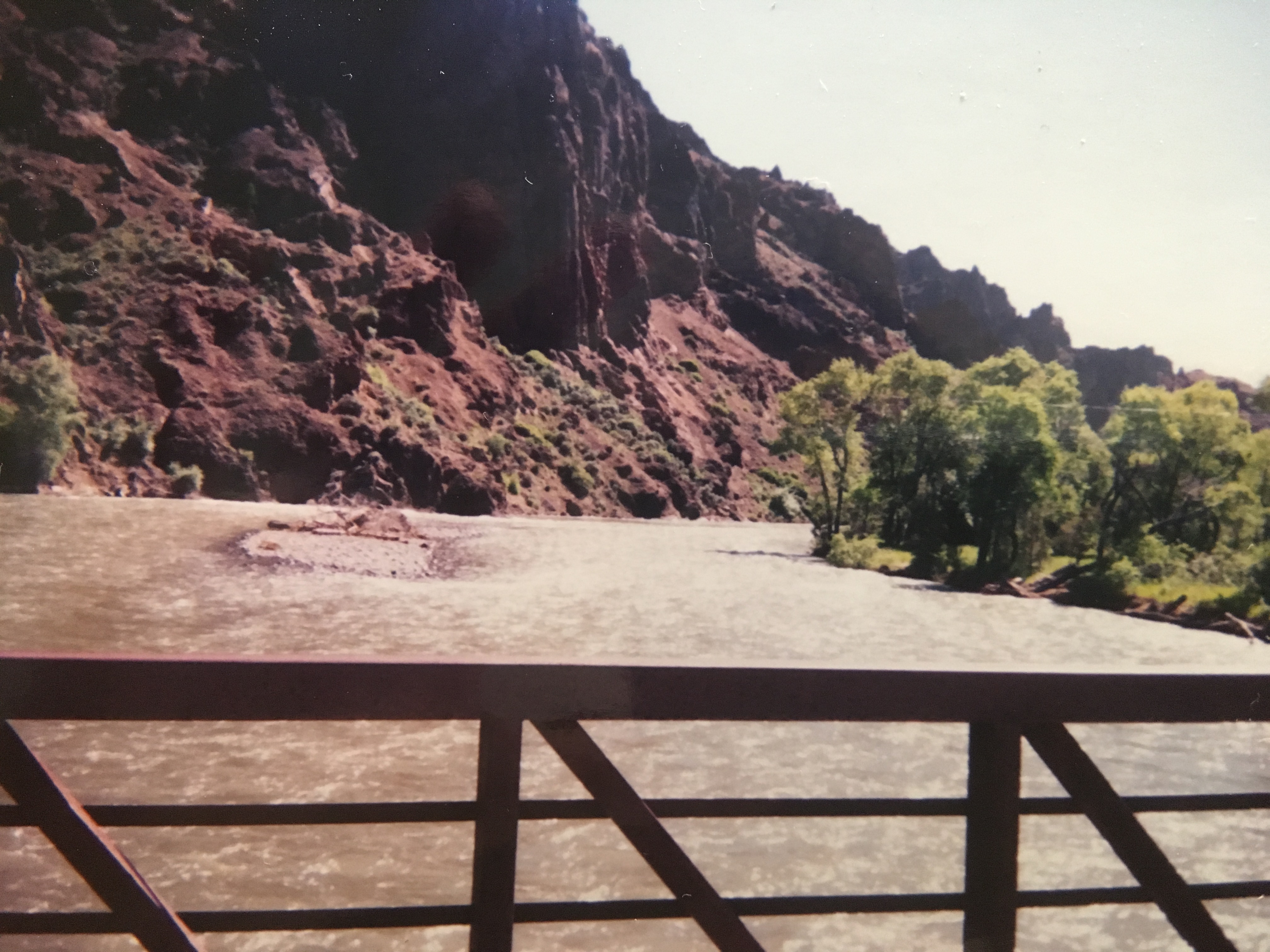
You can tell from the title of my forthcoming novel, Continental Divide, that rivers play a role. The river in the novel, and in the picture above, is the North Fork of the Shoshone River. I took this picture on the bridge behind the ranger station where I worked. The ranger station is, roughly, on the right, where the trees are. The cliffs to the left give a good sense of what the landscape was like in the area.
Suffice it to say, this place was not like the White Mountains of Maine, where I'd grown up. It was not like Boston, where I was in college. I had never seen anything like this place, and I felt a sense of awe at the foreignness, at the vastness. And I felt entirely lost.
The lost-ness was a function of place -- I have to believe that anybody who had come from New England to Wapiti, Wyoming would feel a similar sense of delightful bewilderment, at least for a while. But the lost-ness was also a function of self. Who would I be in this place? What would this place make of me?
I had gone west out of a frustration with what felt the confines and expectations of the east. Coming out as transgender, I felt caught between who I had been (and the pressure to conform either to the expectation I be the girl I "ought" to be... or be a "real" lesbian, as some of my friends suggested) and the self I had just articulated by coming out as trans.
Coming out was very liberating. But it also came with its own expectations. A lot of people -- transgender and not -- thought I should medically transition; people were baffled that I didn't want (still don't want) surgery. To them, this meant I "didn't really mean it" about being a man...I didn't want to do anything permanent.
So heading out west was the chance for me to say: here I am, just me, with no one around me expecting me to be who I had been in the past, or conform to some expectation they had for me based on an identity category. And then, having arrived in this new place, I could take a deep breath and ask, what does being me mean?
The river helped with that. Often, I'd end my runs at the bridge and stretch, one leg up on the railing. It was good for my hamstrings, but it was really just an excuse to watch the water flow past. I arrived at the station when things were still a bit flooded; I stayed until the river was half its former width. I loved the sense of time, of both movement and stillness, that the river gave me.
In the novel, Ron's interest in rivers is slightly different. He is wondering more about direction - which way to go, east or west, and by extension, where he belongs. I don't think I ever asked that question of the river myself. But I do remember spending many pleasant mornings and evenings, sitting on the the little porch of my cabin and listening to the river running by, hidden behind the trees. Just the sound of it, its invisible presence, brought me comfort, reassurance -- I was here, I would keep on moving, I would change, I would stay the same.